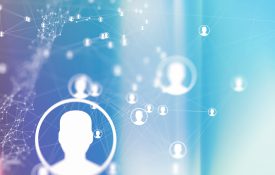-
A Pair of Witnesses Can Be Better Than One
The Wall Street Journal: If you witness a crime, what’s the best way to recall what happened? Minutes to months later, police might ask you the color of the perp’s eyes, the design of his tattoo or how long it took him to pull out a gun after he entered the room. Would it be better to recount your story on your own or alongside the person you were with at the time? Anyone who has ever watched a police procedural can answer that question. Witnesses are always interviewed alone, in a dismal, windowless holding cell—that is, if the interview takes place in Hollywood. ...
-
Can a Brain Scan Tell What You’re Thinking?
Pacific Standard: Mind reading stands as one of science fiction’s most enduring improbabilities, alongside light-speed space travel and laser guns. But unlike those latter two, mind reading actually has a whiff of reality: In a new demonstration, psychologists have shown they can figure out how far along someone’s brain is in the process of solving a sophisticated math problem—a result that, more than anything else, indicates the promise of new brain-scanning techniques for understanding the human mind.
-
How Do Nature And Nurture Combine To Make Us Who We Are?
NPR: Psychologist Steven Pinker describes how far we've come in understanding how both nature and nurture make us ... us. Harvard psychology professor Steven Pinker questions the very nature of our thoughts — the way we use words, how we learn, and how we relate to others. In his books, he has applied sophisticated language analysis to topics of mass appeal such as language, human nature, and violence. Read the whole story: NPR
-

Witnesses Confuse Innocent and Guilty Suspects with ‘Unfair’ Lineups
Police lineups in which distinctive individual marks or features are not altered can impair witnesses’ ability to distinguish between innocent and guilty suspects.
-
Tim Duncan’s Other Career as an Academic Psychologist
The Wall Street Journal: Mark Leary was a social psychologist at Wake Forest in 1995 when he was invited to write a book chapter about a topic he says he didn’t know much about: egotism. He rounded up some undergraduates to help with the research. This wasn’t as easy as it would be now. It wasn’t yet possible to read academic papers online, and his assistants had to visit obscure corners of Wake Forest’s library to dig through arcane journals.
-
What NASA Could Teach Tesla about Autopilot’s Limits
Scientific American: Tesla Motors says the Autopilot system for its Model S sedan “relieves drivers of the most tedious and potentially dangerous aspects of road travel.” The second part of that promise was put in doubt by the fatal crash of a Model S earlier this year, when its Autopilot system failed to recognize a tractor-trailer turning in front of the vehicle. Tesla says the driver, Joshua Brown, also failed to notice the trailer in time to prevent a collision. The result? In Tesla’s own words, “the brake was not applied”—and the car plowed under the trailer at full speed, killing Brown. ...

